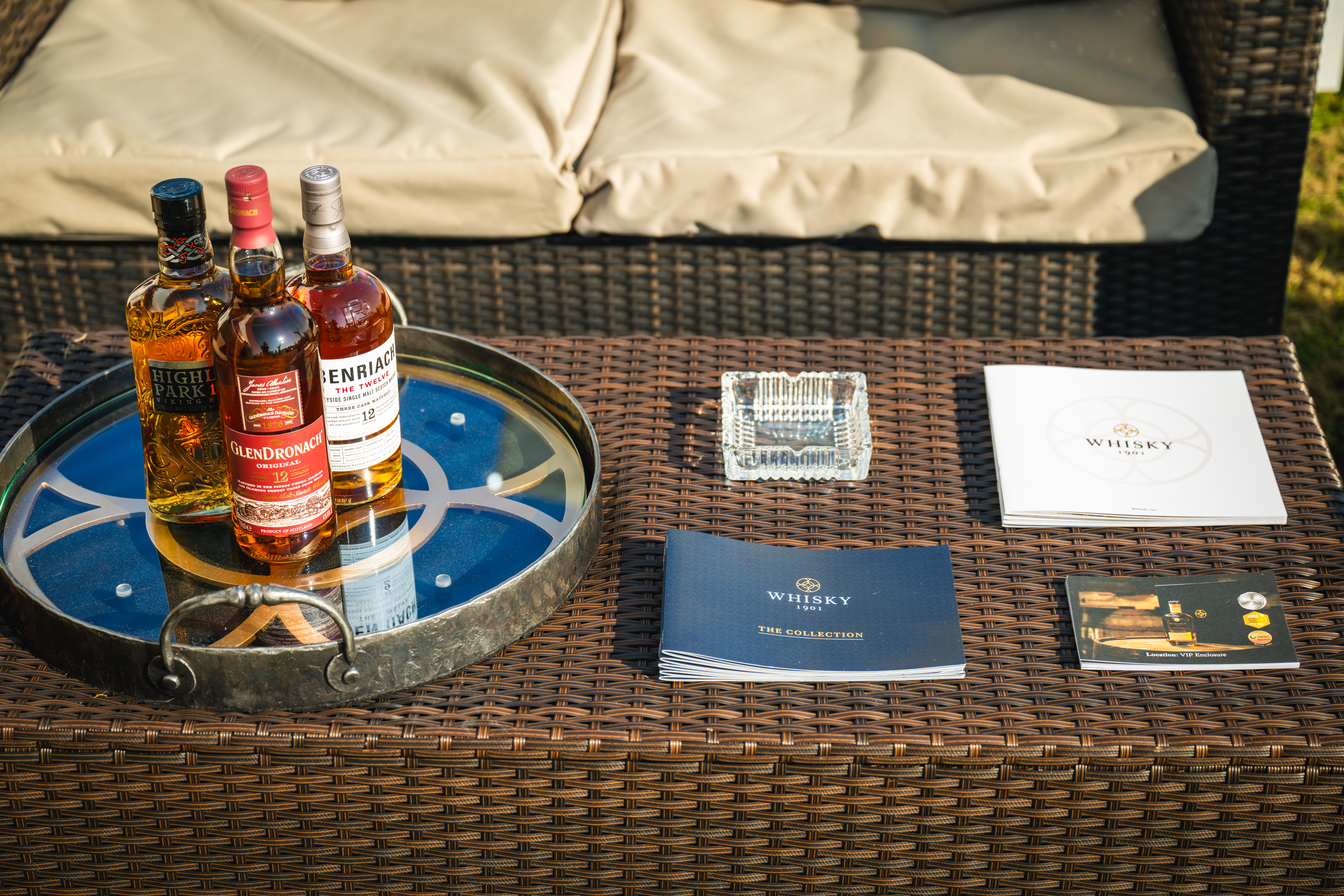Alternative asset investment on the up
In 2023 alternative investments across the globe accounted for 42% of all strategic asset allocation. This included private equity, real estate, hedge funds, gold/precious metals, art and antiques, amongst others. The industry has also been growing steadily over the past few years with a 7% increase in investments from 2020-2024.
Indulge your passions
Investments in alternative asset classes, particularly luxury items such as watches, classic cars and alcohol including wine or whisky, is an exciting opportunity to satisfy a passion, as well as offering potential financial returns. A luxury timepiece can be worn and appreciated for its aesthetics, a piece of automotive history can be driven, and you can savour the taste of a premium Scotch whisky. But the head must work in tandem with the heart in all matters investment related.
Evaluate the risk
Navigating the alternative investment market can be daunting, particularly to new investors.
With numerous options available and varied ROI potential, investors must think strategically about each class of investment to maximise returns. This usually starts with determining how much, or what percentage, of their portfolio to dedicate to each asset based on appetite for risk.
With such dramatic growth in recent years, investors need to familiarise themselves with the strategies necessary to assess alternative investment options and how they can optimise their portfolio diversification.
Seek expert advice
To fully understand the alternative investment market, investors must undertake comprehensive research into the investment’s historical performance, the market conditions and whether the investment is subject to set regulations. Partnering with experts in the respective fields will provide the right type of advice for the scenario and opportunity being considered. For example, many traditional investments are regulated by the Financial Conduct Authority (FCA), while others, such as gold, whisky and cryptocurrencies, are not presently FCA-regulated, meaning there’s even more reason to exercise caution and seek the right advice when beginning on this journey.
Undertaking a risk assessment with an investment broker can provide investors with the knowledge to make an informed decision about investing in alternative assets.
Consider whisky investment
Whisky investment, both in bottles and casks, continues to be an attractive alternative investment proposition. While the Knight Frank Luxury Index showed a dip in value for rare whisky bottles in 2023, there was a 280% growth over a 10-year period, showing the huge potential for this asset in the long term.
Last year, a Macallan 1926 single malt whisky was sold for £2.1 million – breaking records as the most expensive whisky bottle sold at auction. In 2022, a rare cask of Arberg was sold for over £16 million – the most expensive whisky ever recorded to be sold globally. While these are exceptional cases, this potential is prevalent in other whisky cask investments, with the BC20 Whisky Cask Index highlighting that whisky casks have ‘significantly outperformed all the traditional investment options in recent years’ with the industry seeing a growth of 14.95% in 2022.
There are no guarantees
As with any investment, there are no guarantees about the return you will make. It is important to note that some alternative investments are unregulated in the UK and the value of investment is variable, so an investor may get back less than the amount invested, and profit is not guaranteed. Therefore, investors should always seek advice from an independent financial advisor before investing.
That said, investors who take advantage of a diverse portfolio and mitigate risks, with multiple assets that perform differently, will see their investments thrive in today’s economic market.
To find out more about the opportunities associated with whisky cask investment, contact our team for more information.





